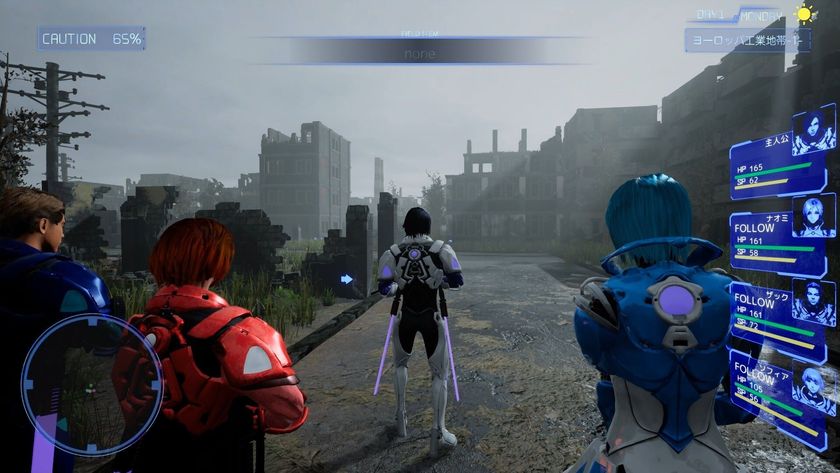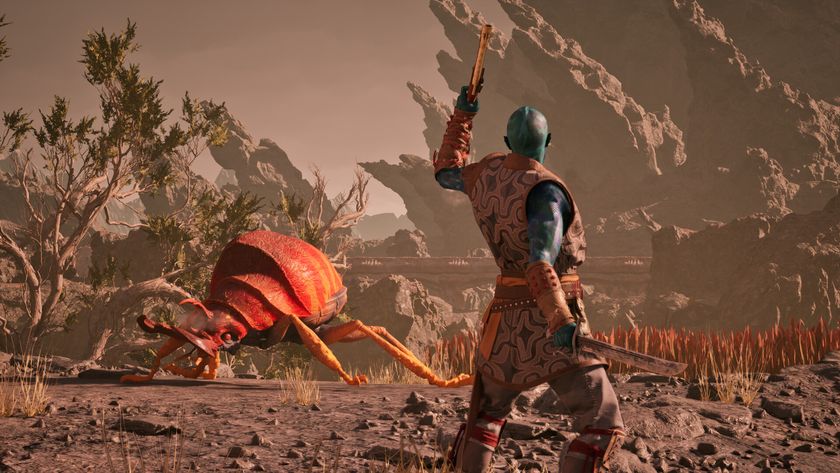Why you can trust GamesRadar+
It's been several years since gamers moved on from the 16-bit era, but Sega, it seems, is still struggling to find a comfy space for Sonic on today's generation of hardware.
His defining characteristics, excessive speed and loop-the-loop abandon, still have no acceptable place in 3D platforming, and Sonic Team still seems hogtied by the idea of making a character move this fast in an environment that's more than just a racetrack.
So, Sonic Heroes brings with it the prospect of teamwork, letting the player control a trio of characters in an attempt to give them reason to slow down, dispense with the shark-like obsession of forever moving forwards, and think a little.
Every team offers a speedy, flying and powerful character that can be switched to as and when you need to call on their particular strengths. A little bit of strategy, then.
To its credit the game opens auspiciously, and the multiple-choice pathways opened to you, clearly signposted as to which character can take you where, feel fresh enough to suggest that Sonic has finally cracked his 3D curse.
With each subsequent level, though, that sensation flakes away as you realise that nothing really changes, whether between teams or levels, except for the risk of being flung to your death by a deadly mix of camera and momentum.
The number of times you'll plummet into oblivion due to the confusing and jerky camerawork of up-close combat, or just through missing a platform you didn't even know existed, is excessive.
Rarely does dying feel like the player's fault and, in typical Sonic Adventure fashion, the best bits are when you find that the majority of control has been taken away from you, and you're flung around the game world at escape velocity.
You really want to like Sonic Heroes, every new level bringing with it a flash of effervescent colour, towering skyscraper scale and a sachet of visual imagination.
It's an uphill struggle, though, with every accidental death and workmanlike puzzle nibbling away another wedge of that enthusiasm, until you're left with a cluttered, stuttered and unmoving experience.
More info
| Platform | "PC","Xbox","PS2","GameCube" |
| US censor rating | "","","","" |
| UK censor rating | "3+","3+","3+","3+" |
| Release date | 1 January 1970 (US), 1 January 1970 (UK) |

Blood of Dawnwalker devs explain how the vampire RPG's "narrative sandbox" builds on what they were "known for crafting" in games like The Witcher 3

Persona and Metaphor: ReFantazio composer's new JRPG gets a Steam Next Fest demo, and it's basically a turn-based Metal Gear Solid

Avowed is nothing like Bethesda's RPGs, but The Elder Scrolls 6 should take inspiration from its combat
Most Popular




